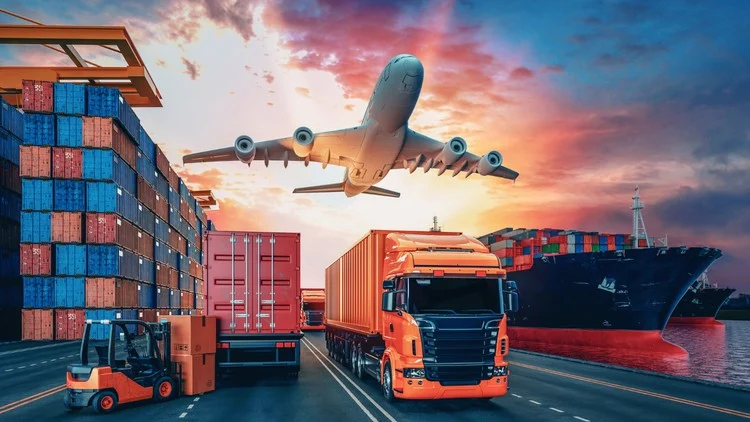
In today’s rapidly evolving global economy, international transport and logistics have become more than operational necessities—they are fundamental to the success of modern business. From manufacturers to retailers and e-commerce giants to small exporters, the efficient movement of goods across borders is critical. Companies like https://hugo-transport.de/ Hugo Transport are at the forefront of this dynamic industry, providing specialized, flexible, and forward-thinking logistics services that allow businesses to expand globally with confidence.
As supply chains grow increasingly complex and customer expectations soar, international logistics solutions must be faster, more transparent, and more sustainable than ever before. In this article, we explore the essential components, strategies, challenges, and future of international transport and logistics, and why choosing the right partner can make all the difference.
The Backbone of Global Trade
International logistics refers to the coordinated planning, execution, and oversight of moving goods from one country to another. It is a wide-reaching discipline involving a network of transportation modes, customs authorities, legal frameworks, and technology systems. Logistics companies act as intermediaries, problem-solvers, and architects of the supply chain—ensuring that goods move efficiently, legally, and safely.
Hugo Transport is an example of a logistics provider that integrates all these elements to deliver tailored solutions to clients across Europe and the world. Their services include international road transport, air and sea freight, customs handling, warehousing, and more.
Key Elements of International Transport & Logistics
Successfully managing global shipments involves a range of interconnected services and systems. Here are the key components:
1. Transportation Modes
A logistics provider must strategically select and combine various modes of transport based on cost, time, cargo type, and route:
- Road Freight: Ideal for short- and mid-range deliveries within the EU. Offers flexibility and direct-to-destination transport.
- Rail Transport: Efficient for heavy goods and large volumes, especially overland between Europe and Asia.
- Sea Freight: Most economical for bulk shipments over long distances. Ideal for non-urgent cargo.
- Air Freight: Fastest mode, used for urgent, high-value, or perishable goods.
Multimodal solutions often combine two or more of these modes to optimize efficiency and minimize costs.
2. Customs Clearance
Every international shipment must pass through customs, and mistakes here can be costly. Customs requirements vary by country and may include:
- Invoices and packing lists
- Certificates of origin
- Tariff classifications (HS codes)
- Import licenses and permits
- Duty and tax payments
Hugo Transport assists clients by ensuring documents are correct, procedures are followed, and goods clear customs smoothly—preventing delays and penalties.
3. Warehousing and Inventory Management
Global logistics often require temporary storage and strategic inventory planning. Warehouses are used to:
- Consolidate or break down shipments
- Manage stock across markets
- Perform quality control or packaging
- Handle returns or cross-docking
State-of-the-art facilities managed by logistics experts like Hugo Transport reduce risk, shorten delivery times, and keep the supply chain flowing efficiently.
4. Supply Chain Visibility
Modern clients demand transparency throughout the delivery process. Real-time tracking, digital dashboards, and automated status updates provide a bird’s-eye view of cargo movement and allow for proactive responses to disruptions.
Industry-Specific Logistics Needs
Different sectors have different logistical requirements. A key strength of international logistics providers is their ability to tailor services for specific industries.
- Automotive: Requires just-in-time delivery of components to avoid costly production delays.
- Retail & E-commerce: High volume, fast turnover, and reverse logistics for returns management.
- Food & Beverage: Temperature-controlled storage and transport with strict hygiene protocols.
- Pharmaceuticals: Precision, security, and compliance with international regulations.
- Industrial Machinery: Heavy, oversized loads that require permits, escorts, and special equipment.
Hugo Transport adapts its services to meet these industry-specific challenges with customized transport plans and dedicated support teams.
Challenges in International Logistics
Operating across borders brings inevitable hurdles. Some of the main challenges logistics companies face include:
1. Geopolitical Tensions
Trade disputes, sanctions, or regulatory changes (like Brexit) can disrupt transport routes and increase administrative burdens.
2. Infrastructure Limitations
Not all countries have equally developed roads, ports, or rail systems, which can slow delivery times or increase risks.
3. Environmental Regulations
Logistics companies must now meet growing demands for lower emissions, sustainable packaging, and green supply chain practices.
4. Labor Shortages
Truck drivers, warehouse workers, and customs brokers are in high demand globally, affecting service reliability and costs.
Despite these challenges, experienced providers like Hugo Transport proactively manage risk, adapt to changes, and keep deliveries on track.
Embracing Innovation: Digital Logistics
Technology is playing a transformative role in how goods move around the globe. Digitalization not only improves speed and efficiency but also enhances customer experience.
Key Technologies in Logistics:
- IoT and GPS Tracking: Real-time data about cargo location, condition, and delays.
- AI and Predictive Analytics: Improved forecasting, route planning, and inventory control.
- Blockchain: Secure and transparent documentation for customs and payments.
- Cloud Platforms: Integrated systems that connect shippers, carriers, and clients in one digital ecosystem.
Hugo Transport utilizes modern digital tools to provide seamless logistics management, offering clients full control and visibility over their supply chains.
Sustainability in Transport & Logistics
Sustainability is no longer a future goal—it’s a present-day requirement. Customers, governments, and investors are pushing logistics providers to reduce their environmental impact.
Sustainable logistics practices include:
- Using electric or low-emission vehicles
- Switching from air to rail or sea where possible
- Optimizing delivery routes to reduce fuel consumption
- Recycling packaging materials
- Offsetting carbon emissions
Hugo Transport is committed to eco-conscious logistics and works closely with clients to create greener transport solutions without sacrificing efficiency.
The Importance of a Reliable Logistics Partner
Choosing a logistics partner is a critical business decision. The wrong provider can lead to missed deadlines, damaged goods, or lost sales. A professional logistics company offers more than trucks and warehouses—it provides strategic value, risk management, and long-term reliability.
Hugo Transport stands out due to:
- Deep knowledge of European and international markets
- A hands-on, customer-focused approach
- Strong carrier and partner networks
- Investment in technology and sustainability
- Flexible, scalable services for growing businesses
Whether a company ships a few pallets a month or hundreds of containers annually, Hugo Transport ensures peace of mind through dependable, customized logistics.
Looking Ahead: The Future of Global Logistics
As global commerce continues to evolve, the logistics industry must adapt to new realities:
- Nearshoring and regional hubs will reduce overreliance on distant suppliers.
- Automation and AI will streamline warehouse and port operations.
- E-commerce growth will reshape delivery networks.
- Data-driven decisions will allow predictive logistics rather than reactive problem-solving.
- Collaboration across supply chains will become essential for resilience and transparency.
Hugo Transport is embracing this future by investing in innovation, people, and infrastructure—ready to meet the demands of a fast-changing world.
Conclusion: The Engine of Global Growth
International transport and logistics are not simply about moving goods—they are about enabling opportunity, stability, and growth. Every successful global business depends on a reliable logistics framework that connects producers with consumers, manufacturers with suppliers, and ideas with execution.
In a time when speed, precision, and flexibility are paramount, companies like Hugo Transport provide the expertise and infrastructure to keep global commerce running smoothly. By choosing a skilled and visionary logistics partner, businesses gain more than a service provider—they gain a strategic advantage in the global marketplace.



